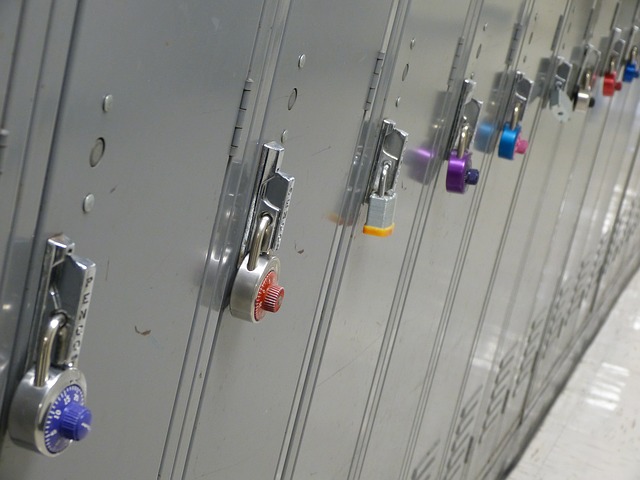The following resources focus on the educational climate and betterment of those serving the K–12 educational community.
Tennessee School Boards Association is the 2019 recipient of the Education Commission of the States Corporate Award Education Commission of the States is pleased to announce the Tennessee School Boards Association as the 2019 recipient of the Education Commission of the States Corporate Award for its leadership in making digital resources more accessible to school districts across the state. The Tennessee Digital Resource Library is an online repository of vetted, standards-aligned and inexpensive course materials that can help teachers and school leaders embrace 21st-century learning in the classroom. It was created in partnership with the Tennessee Educational Technology Association, Tennessee Organization of School Superintendents, Tennessee Association of Supervision and Curriculum Development, Tennessee Book Company and over 50 Tennessee teachers.
States That Spend the Most (And the Least) on Education Schools in some states receive much larger sums of money—up to three times more per pupil—than in other states. Where the money comes from differs, too. And how schools opt to spend their funding varies significantly from state to state. (Governing)
Are You Working on Work-Based Learning in Your State? Tune In to This Series As policymakers who comb through news, you are likely to have seen news stories on work-based learning—often highlighting the benefits that flow to students and the whirlwind of work being done at the state and district levels to make such programs flourish.
In The Lay of the Land, the Tennessee Educational Equity Coalition employs a place-based equity lens across three content areas in rural education, offering targeted policy recommendations that correspond to the issues.
Maybe They’re Born With It, or Maybe It’s Experience: Toward a Deeper Understanding of the Learning Style Myth Decades of research suggest that learning styles, or the belief that people learn better when they receive instruction in their dominant way of learning, may be one of the most pervasive myths about cognition. Nonetheless, little is known about what it means to believe in learning styles. The authors use one theoretical framework—psychological essentialism—to explore the content and consistency of people’s learning style beliefs. Psychological essentialism is a belief that certain categories (such as dogs, girls, or visual learners) have an underlying reality or true nature that is biologically based and highly predictive of many other features. The authors tested the prevalence of erroneous essentialist beliefs regarding learning styles in both educators and non-educators, including that learning styles are innate, unchanging, discrete, and wired into the brain. In each of two experiments, the authors identified two groups of learning style believers, with one group holding an essentialist interpretation of learning styles, and the other group holding a nonessentialist interpretation of learning styles. No differences were found between educators’ and non-educators’ beliefs. In fact, only one factor was found to be a significant predictor of learning style beliefs for educators: the age of the population with whom they work. Specifically, those who worked with younger children were more likely to interpret learning styles in an essentialist way. Together the findings demonstrate that learning style beliefs are far more complex and variable than previously recognized. (Journal of Educational Psychology)
Illinois Top Educator Wants to Revamp State Testing Seeking greater alignment and useful data to drive improved student outcomes, State Superintendent Carmen Ayala is moving to replace the patchwork of state tests that students take from kindergarten through high school, and replace them with one coordinated type of measurement. (Chalkbeat)
Quality Counts 2019: Grading the States—School Finance This installment of Quality Counts 2019 examines that question and more, digging into the policy and political debates over K-12 funding, and how the nation and the states stack up, complete with scores, rankings, A-F grades, and expert analysis. This year, Illinois finishes 15th out of 49 states receiving overall school finance rankings, with an overall score of 80.2 out of 100 points and a grade of B-minus. The nation as a whole posts a grade of C. (Education Week)
Special Report: How Evidence-Based Funding is Helping Illinois Students IASA shares stories of how the state’s Evidence-Based Funding formula (EBF) is benefiting 50 school districts from all corners of the state, including from urban, rural and suburban environments. Their insights make it abundantly clear that EBF has made a difference, but there is still a long way to go to get all IL districts to full, adequate funding.
How States Define Work-Based Learning As policymakers, some of you may have a clear definition of each of the components that make up a quality work-based learning program, but is your definition and conceptualization consistent with other policymakers in your state who may have varying views and interests? As it turns out, the position you may find yourself in is similar to that of policymakers across the country. Many of our constituents attest to the range of interests, perspectives, and in some cases, visions of what constitutes quality work-based learning. Further, what high quality work-based learning looks like can vary from one state to another.
Tennessee’s rural schools overlooked amid urban focus, says equity group For almost a decade, Tennessee has focused its school improvement work on its big cities where large numbers of students are of color, live in extreme poverty, and have disabilities. But a new report says rural schools also face significant challenges in providing an equitable education to a third of the state’s students, all while serving a growing Latino population drawn to those areas mostly by agricultural work.
Montana grant aims to help rewire students’ brains, reduce effects of childhood trauma A new $2.1 million grant will aim to help schools teach students harmed by childhood trauma to rewire their brains and build resilience in the future. The PAX Good Behavior Game is an evidence-based classroom teaching strategy that rewards students for good behavior and smart choices. It seems simple, but it’s grounded in neuroscience.

